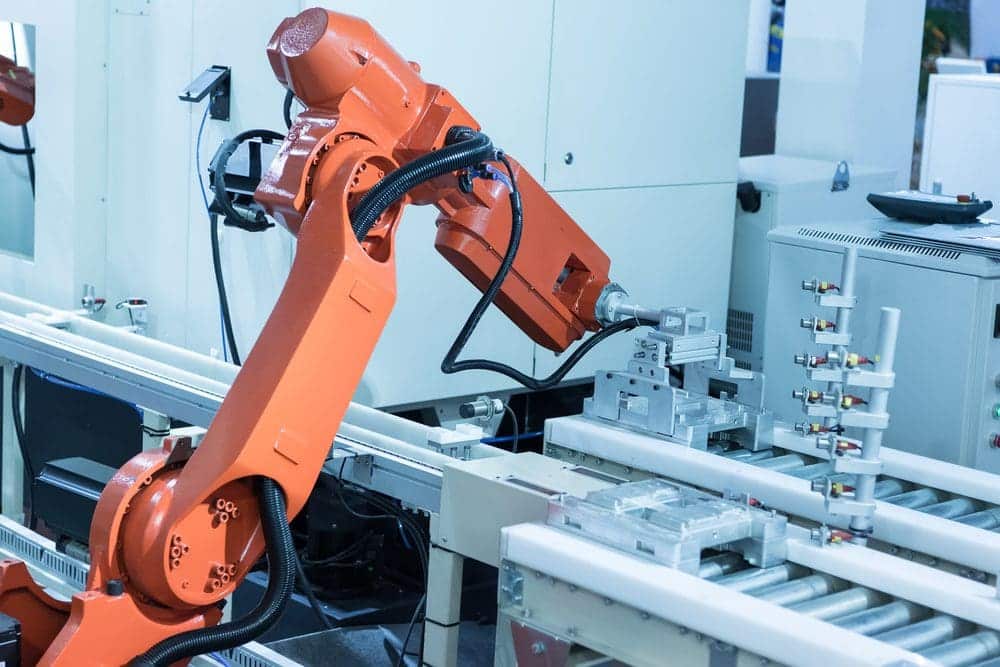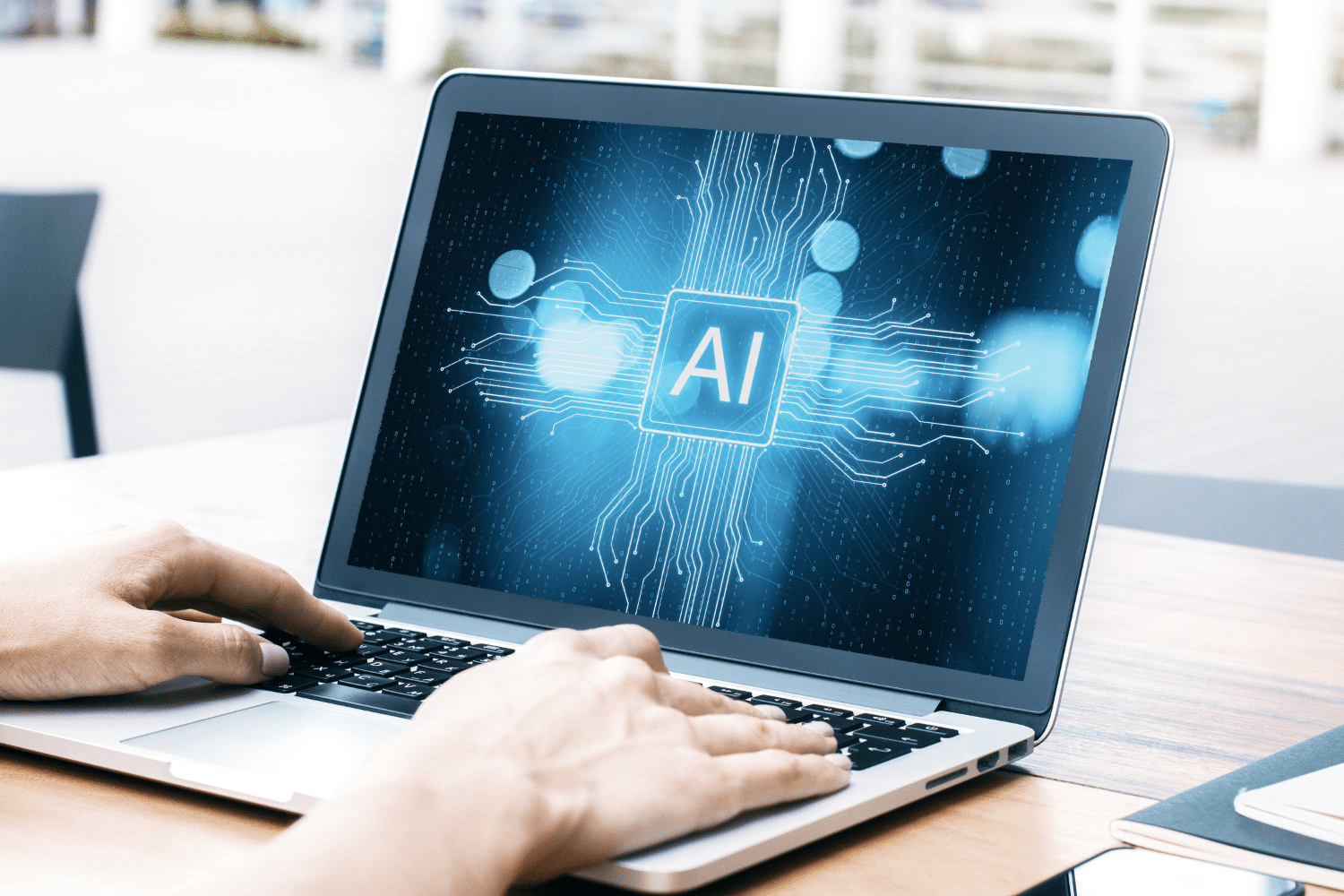Artificial intelligence (AI) is revolutionizing industries, driving high demand for AI professionals. It’s vital in tech, healthcare, and finance. This post guides you through essential skills, job roles, and strategies for success in finding jobs in artificial intelligence.
Key Takeaways:
- AI technology has had a significant impact on the job market, both eliminating and creating jobs.
- Essential skills for AI careers include technical abilities in mathematics, computer science & engineering and soft skills such as communication & problem-solving.
- Job seekers should leverage appropriate strategies to maximize their chances of success in the competitive AI job market.
The Impact of Jobs In Artificial Intelligence

The rapid growth of AI technology has substantially impacted the job market. It has eliminated and generated jobs, transforming the global workforce landscape. Companies leveraging AI’s power can streamline processes, enhance customer service, and generate more precise and timely insights.
While AI technology has caused some job displacement, it simultaneously creates new opportunities across various industries. As organizations increasingly adopt AI and machine learning techniques, the demand for AI professionals continues to soar, presenting numerous employment prospects for those with the right skills and qualifications.
Job Displacement
Job displacement occurs when traditional jobs are replaced by AI, leading to fewer opportunities for humans. However, AI also provides new opportunities in various industries, ranging from technology to healthcare, finance, and beyond.
For instance, software engineering roles are evolving to include AI and machine learning components, offering aspiring AI professionals a chance to transition into this dynamic field.
Job Creation
AI generates numerous employment opportunities across various industries, including AI engineers, robotics specialists, and AI ethicists. These roles require professionals to have a strong foundation in computer science, data science, and programming languages, among other technical skills.
The average salary for AI and robotics engineers is approximately $171,715 and $101,062, respectively, making these roles highly lucrative for qualified individuals.
Essential Skills for AI Careers

To excel in AI careers, professionals must blend technical and soft skills. Technical skills include proficiency in mathematics, computer science, engineering, and programming languages, while soft skills encompass critical thinking, creativity, communication, and problem-solving abilities.
The following subsections will delve into the technical and soft skills essential for jobs in artificial intelligence.
Technical Skills
AI professionals need proficiency in mathematics, computer science, and programming languages like Python, R, and SQL. They should excel in data extraction, analysis, and visualization, using tools like Pandas and NumPy.
Additionally, skills in machine learning, deep learning, natural language processing, and computer vision are crucial for developing advanced AI models and applications, addressing complex business challenges, and fostering innovation.
Soft Skills
While technical skills are undeniably crucial for AI professionals, soft skills are equally significant in their success. Effective communication, problem-solving, and leadership skills are vital, as these professionals often need to collaborate with cross-functional teams and convey complex information to stakeholders easily.
In addition, critical thinking, creativity, and emotional intelligence are essential to navigate AI technology’s ethical considerations and challenges.
Popular AI Job Roles

AI offers diverse job roles for professionals with the right qualifications and skills. Some popular job roles in AI include AI engineer, robotics specialist, and AI ethicist.
The following subsections will explore the responsibilities, qualifications, and skills required for jobs in artificial intelligence.
AI Engineer
AI engineers develop and maintain AI applications, needing degrees in computer science or AI, plus research experience. Technical skills like data analysis and programming (Python, R) are vital. Strong communication and teamwork skills matter too.
AI engineers earn $120,017 on average, making it an appealing career. They can work in tech, healthcare, or finance to drive innovation and enhance outcomes.
Robotics Specialist
A robotics specialist designs and constructs robots for various applications and purposes. Requiring a bachelor’s degree in robotic, mechanical, electromechanical, or electrical engineering, this role needs experts in advanced mathematics and physical sciences. Companies seek professionals skilled in computer science, computer-aided design, physics, fluid dynamics, and materials science, as well as those holding AI certifications.
Earning an average salary of $83,241, a robotic scientist can make up to $130,000 with experience and specialization in industries like technology, healthcare, manufacturing, and space exploration developing cutting-edge robotic systems. Opportunities abound for robotics specialists to contribute their expertise in creating innovative robotic solutions across multiple sectors.
AI Ethicist
AI ethicists wear two hats: AI expert and ethics champion. They straddle the worlds of technology and morality, ensuring AI’s potential for good isn’t overshadowed by unintended consequences. Their deep understanding of AI tech and machine learning isn’t just about algorithms and code; it’s about how these tools shape the real world. But expertise goes beyond the technical. Each ethicist also focuses on a specific industry, like healthcare or finance, mastering how AI can tackle its unique challenges.
This blend of AI savvy and ethical awareness is crucial. Ethicists act as guides, navigating the development and deployment of AI technologies with caution. They constantly ask the tough questions: Will this AI be fair and unbiased? Does it respect privacy and human rights? Will it benefit society as a whole? Their job is to ensure AI, with all its power, is used responsibly, leaving a positive mark on the world.
Preparing for Jobs in Artificial Intelligence

Aspiring AI professionals, take note! Boosting your marketability in the competitive AI job market boils down to three key steps: education, credentials, and experience. Dive headfirst into a relevant degree, like computer science or data science, to build a strong foundation.
Next, stack your resume with AI-specific certifications – think machine learning or deep learning – to showcase your specialized knowledge. Finally, don’t be a wallflower! Seek out internships, projects, or volunteer work in your chosen AI field.
Not only will you gain hands-on experience, but you’ll also forge valuable connections that can propel you towards finding jobs in artificial intelligence. Remember, education paves the path, certifications validate your expertise, and experience puts it all into action. So, get out there and start building your AI future!
Education and Degrees
A bachelor’s or master’s degree in computer science, mathematics, or a related field is generally required for AI jobs. Obtaining an advanced degree in AI can help you stand out from the competition and gain valuable insights from industry professionals.
Additionally, proficiency in programming languages such as MATLAB, C/C++, and Python is essential for most AI positions.
Certifications and Training
Certifications can extensively demonstrate your dedication to the field and provide potential career advancement opportunities.
AI professionals can consider pursuing certifications such as the Stanford University School of Engineering’s Graduate Program in Artificial Intelligence, Springboard Machine Learning Career Track, or Microsoft Certified Azure AI Fundamentals.
Networking and Industry Exposure
Networking and industry exposure is essential for individuals looking to enter the AI job market. Attending AI-related events, conferences, and workshops allows you to connect with industry experts, gain invaluable experience, and open up potential job opportunities.
Engaging with professionals in the AI field can also provide insights into the latest AI technologies and trends, preparing you for a successful AI career.
Industries Hiring AI Professionals

AI professionals are in high demand across multiple industries, including technology companies, healthcare, and finance. These industries recognize the transformative potential of AI and are actively seeking professionals with the right qualifications and skills to drive innovation and improve business outcomes.
Technology Companies
Leading tech companies such as Google, Microsoft, and Amazon actively recruit AI professionals to fill roles such as AI engineers, robotics specialists, and AI ethicists. Technology companies generally require AI professionals to possess a blend of technical and soft skills and a degree in a pertinent field.
Working in technology companies can offer AI professionals access to advanced technology, competitive remuneration, and the chance to work on pioneering projects. This makes tech companies attractive for those looking to build a rewarding AI career.
Healthcare
Healthcare organizations are leveraging AI to enhance patient care and minimize costs. Companies such as GE Healthcare, Medtronic, Microsoft Corporation, and numerous AI startups are revolutionizing various healthcare domains, including drug discovery and disease detection.
As a result, there is a growing demand for AI professionals in the healthcare industry.
Finance
Financial institutions increasingly adopt AI to streamline processes, enhance customer service, and generate more precise and timely insights. Several financial institutions, such as JPMorgan Chase, Goldman Sachs, and Morgan Stanley, employ AI professionals to drive innovation and improve their services.
AI professionals with the right qualifications and skills can find exciting opportunities in the finance sector.
Navigating the AI Job Market

Navigating the AI job market can be challenging, but with the right job search strategies and interview preparation, you can increase your chances of landing your dream AI job.
The following subsections will discuss specific strategies for finding AI job opportunities and preparing for interviews.
Job Search Strategies

Job search strategies for AI careers include researching companies, networking, and applying to entry-level positions. Maintaining current profiles on career-oriented websites and utilizing AI job-seeking tools can help you identify available positions.
Networking with industry experts and keeping up-to-date on the latest AI technologies and trends can also be beneficial in finding job opportunities.
Interview Preparation
Preparing for an AI career interview involves researching the company, practicing technical questions, and dressing professionally. AI-based interview preparation tools are available to assist candidates in their preparations.
During the interview, asking questions that provide a deeper understanding of the role, the team, and the organization is crucial, demonstrating your interest and enthusiasm for the position.
Summary
In conclusion, a career in AI offers exciting opportunities for professionals with the right qualifications and skills. By understanding the impact of AI on the job market, honing your technical and soft skills, exploring popular AI job roles, and implementing effective job search strategies and interview preparation, you can successfully navigate the AI job market and build a rewarding career in this burgeoning field. Embrace the AI revolution and take the first step towards a fulfilling and impactful AI career today.
Frequently Asked Questions
To work in AI, consider majoring in computer science. Computer science degrees offer artificial intelligence and machine learning courses that provide a strong foundation for an AI career. Such courses often cover machine learning algorithms, robotics, computer vision, natural language processing, and other AI-related technologies.
AI professionals are among the most sought-after in the tech world. With this level of experience and expertise comes a high salary potential. Salaries range from $130K – $200K, with an average of around $168K for those with at least five years of professional experience.
Conclusion: AI professionals are among the highest paid in the tech industry, earning an average of $168,000 annually, with salaries ranging from $130,000 to $200,000.
Yes, AI does require coding. AI applications require an understanding of programming languages such as Python, R, Java, and C++ to build and implement models.
However, there are many resources available that can teach the basics of AI without requiring any coding.
Investing in a career in AI is worth it for those interested in the field. With job opportunities projected to soar and high salary potential, AI offers qualified candidates an attractive and promising future.
The demand for AI professionals is proliferating, and the salaries for these positions are often quite competitive. Companies increasingly seek individuals with the skills and knowledge to develop and implement AI solutions.
To work in AI, you should major in computer science or a related field such as mathematics, engineering, or data science. Your studies should include machine learning, algorithms, and statistics courses focusing on developing AI tools.
A more senior role may require an advanced degree such as a master’s or Ph.D.



